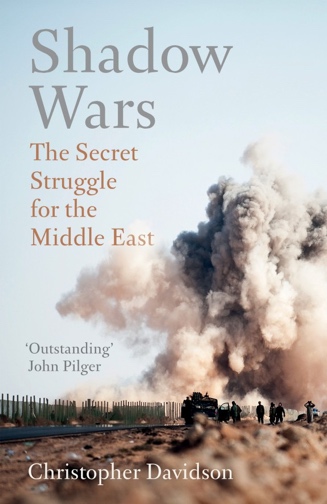In conversations over raki with my ‘middle eastern’ friends, the topic sometimes turns to how the West is seeking to destabilise the region and prevent it from realising the peace and opportunities present in much of the rest of the world. Such a view may have had some merit in the days of imperial colonialism, but in this day and age I would typically dismiss it as a classic conspiracy theory.

Having authored many articles and monographs on various aspects of the politics, international relations and political economy of the Persian Gulf, Davidson herein examines events linked to the Arab Spring across the Middle East. Most observers see the Arab Spring as one of the most significant geopolitical shifts globally since the end of the Cold War: yet debates continue about what factors led to its general failure, including violence, extremism, and authoritarian entrenchment.
According to Davidson, for more than a century, successive United States and United Kingdom governments have led a hidden struggle against progressive forces in the Middle East, driven by a desire for geopolitical advantage and the control of oil. Western powers have repeatedly manipulated the region’s most powerful actors to ensure the security of their own interests and sought to thwart nationalist, socialist and pro-democracy movements in the Middle East. In doing so, they have given rise to religious politics, sectarian war, bloody counter-revolutions and now one of the most brutal incarnations of Islamic extremism ever seen.
Most shocking is his assertion that United States intelligence agencies continue to regard the Islamic State, like al-Qaeda before it, as a strategic, if volatile, asset to be wielded against their enemies. Notwithstanding the declaration of a ‘war on terror’, Davidson believes that the preferred instruments of the Americans and the British have been Islamist movements: the Muslim Brotherhood, the Taliban, and, most recently, the Islamic State. The Americans and the British have often found themselves fighting their own proxies, but they knew that would happen, Davidson claims. They therefore fight half-heartedly, he contends, so that such groups continue to survive.
Nearly all of Davidson’s sources are in the public domain: he uncovers little original evidence for his argument and instead assembles familiar pieces into an unfamiliar shape. The results are unconvincing. For example, if Western powers fostered Islamic State in order to drive a Sunni wedge between Iran and Syria, why did they bother to topple Saddam Hussein, who already played that role? More troubling, Davidson’s analysis denies agency to Islamists, Middle Easterners, and pretty much everyone else: in his view, we are all merely pawns in the shadow wars.
Davidson concludes that Western states, their constituent corporations and regional clients, are threatened by self-determining Arab states. They have foiled the Arab Spring. They have even managed covertly to use the uncertainty of 2011 onwards as a pretext to deepen their interference in the region’s political, economic and security landscape; and to strike at their enemies. No one is spared criticism in his analysis: Arab regimes, fundamentalist movements, the West and Israel are all castigated for their responsibility for the suffering of the people of Middle East today.
Davidson is a reader in Middle East politics and a fellow at Britain’s Durham University; the author of several books on the Middle East; and a frequent media commentator worldwide. There are no images, maps or bibliography in Shadow Wars, but the notes are comprehensive and the index useful.
Shadow Wars is provocative and alarming, but is it factual? Given that so many of Davidson’s sources come from the Internet, I fear this book is a product of the ‘post-truth’ era in which fact can be difficult to separate from fiction (or conspiracy theory). Shadow Wars may interest those with a deep interest in Middle Eastern geopolitics or those with a particular world view, but, for most readers, it will strain credulity.
Contact Marcus Fielding about this article.






